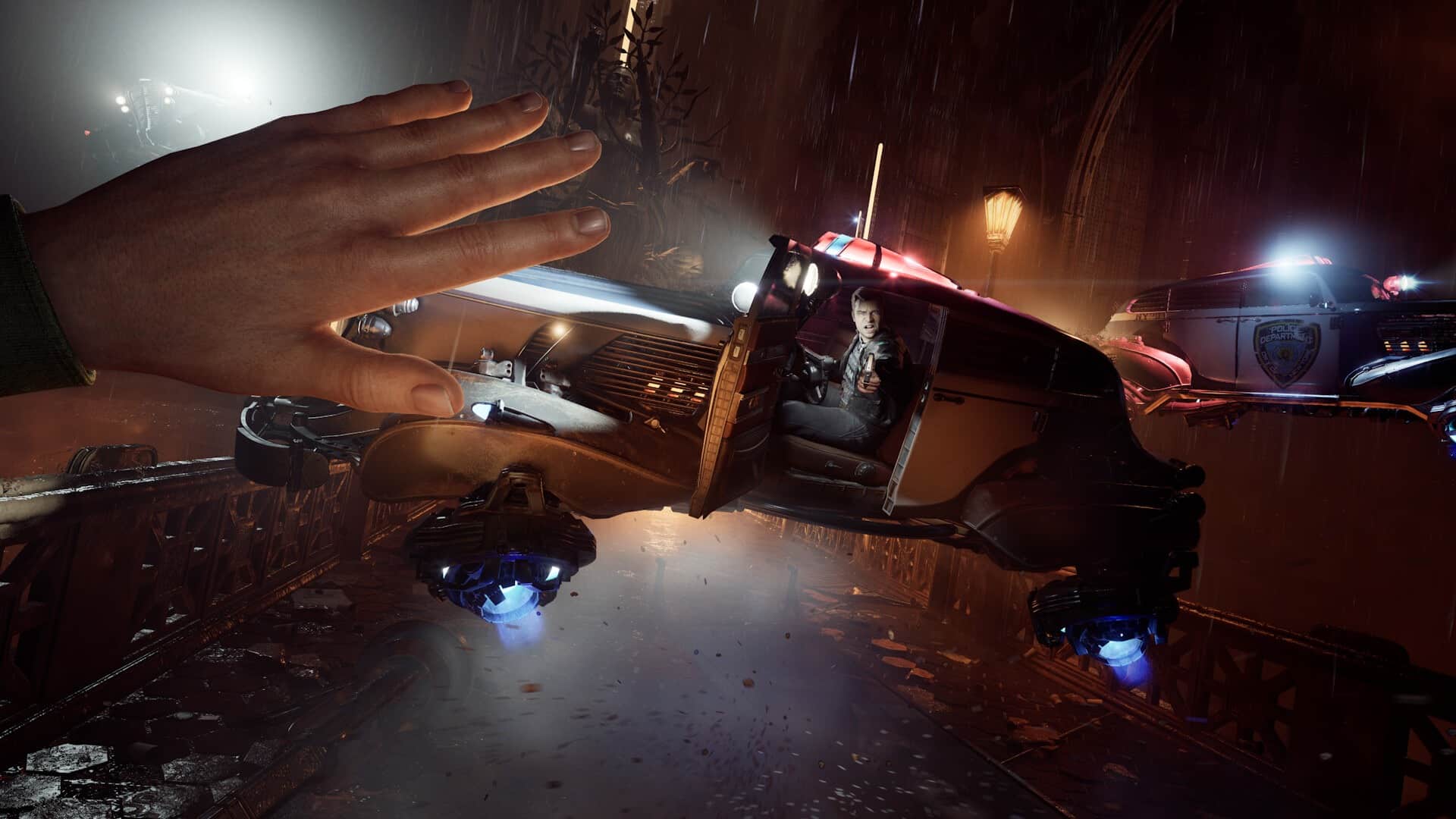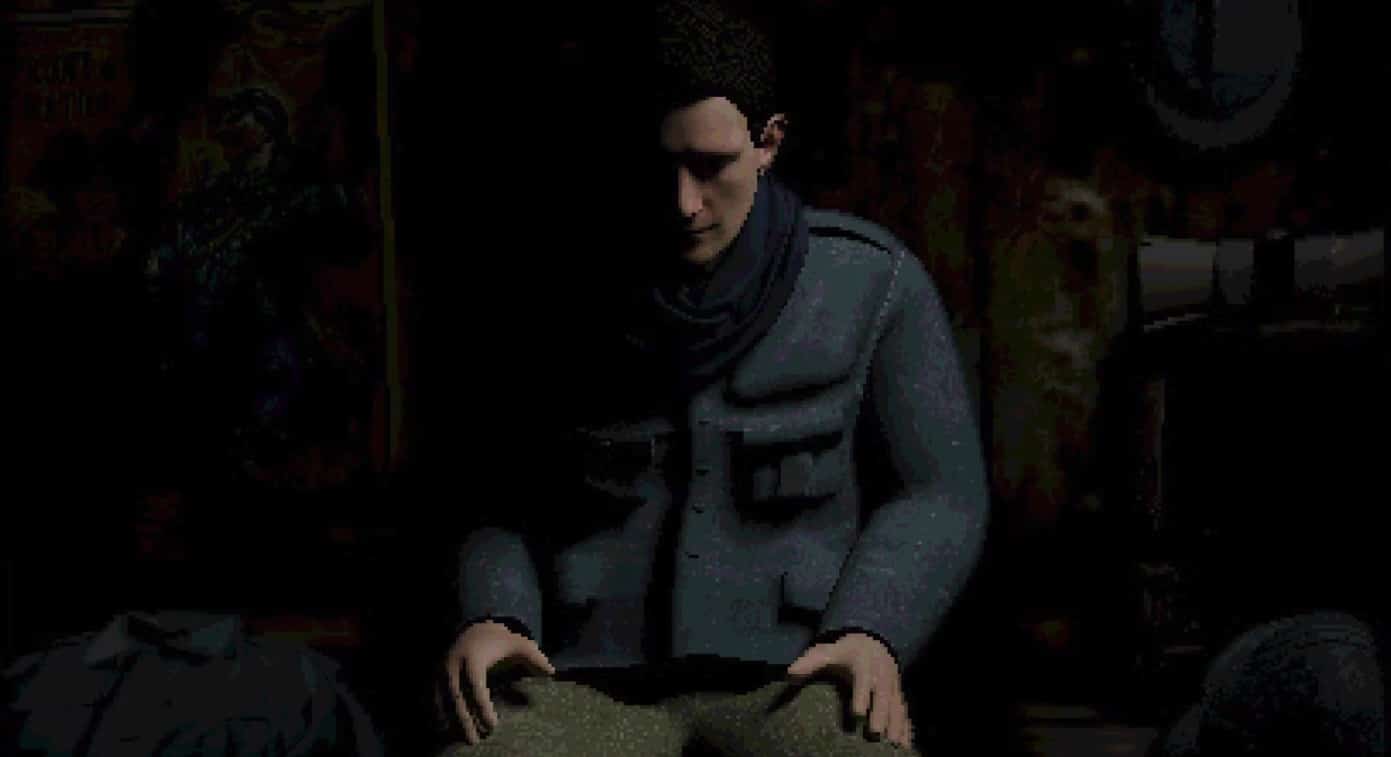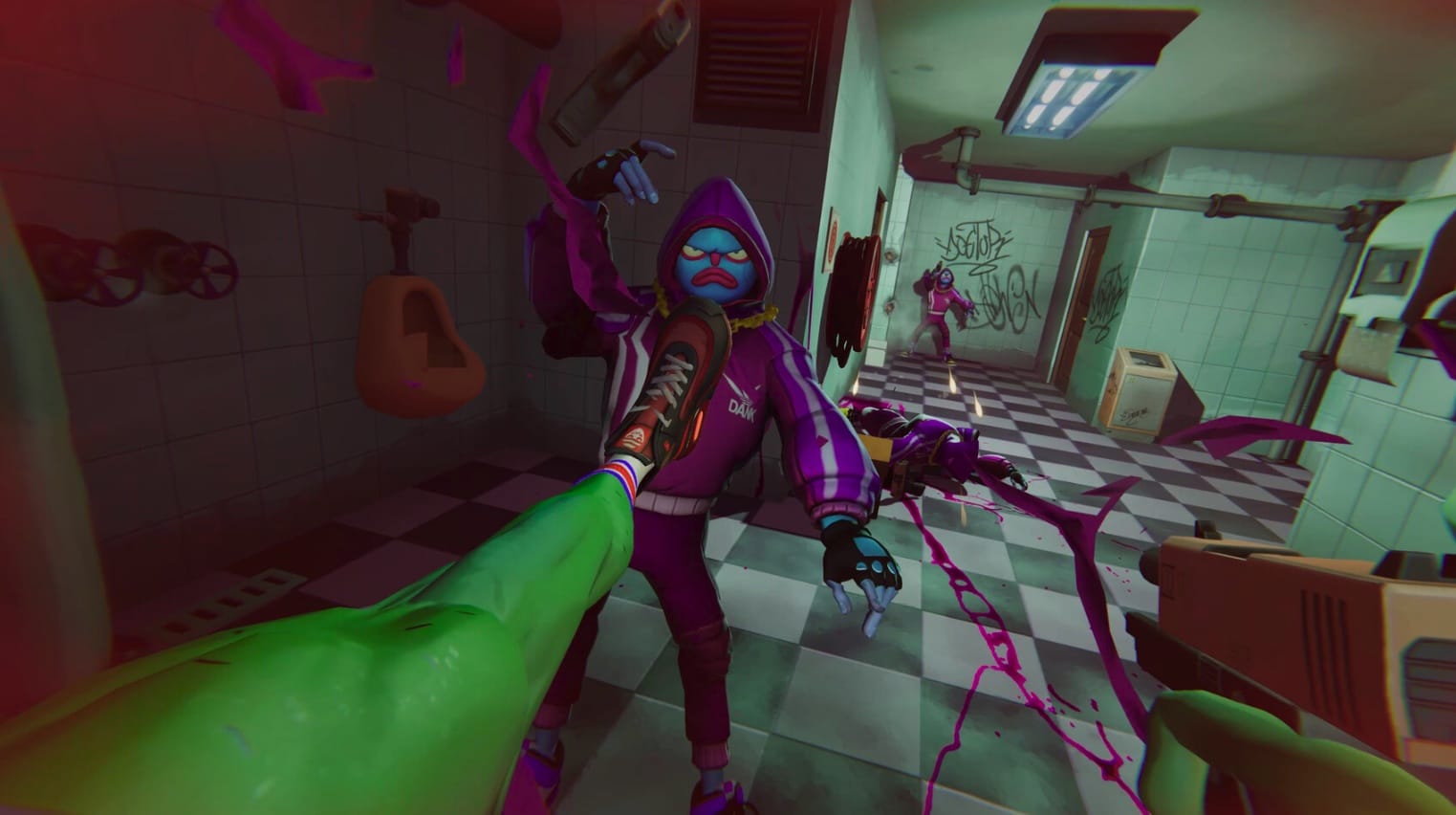First-person open-world detective game Shadows of Doubt is, even in its current early access state, an impressive technical and mechanical accomplishment. Through two major vectors – sophisticated procedural generation, as well as smart, generative, detective-focused gameplay – the game sets a new bar for what an ‘Immersive Simulation’ game can be.
Shadows of Doubt sees the possibilities of how games can be expanded. It’s one of those experiences you’ll find yourself shouting about from the rooftops – ‘You have to try this. Trust me.’
The ‘One City Block RPG’
One of the more enduring game design ideas of the last decade centres around famed game designer Warren Spector’s idea of a ‘One City Block RPG.’ The ideal here lies in simulating a single location with an ‘inch-wide, mile-deep’ philosophy, where the space you are interacting with is limited, but what you can do within that space is as close to limitless as possible.
Traditionally, this would be achieved through meticulously handcrafted scenarios – game designers create a space, think up the possible ways players may want to approach it, and then create bespoke options to account for each of them.
The benefit of the single city block idea is that it will let you approach objectives in any way of your choosing. This is often embodied through the lens of Immersive Sim games like Deus Ex and System Shock, where the player is given multiple options on how to approach any given goal. Do you break down the door with guns blazing, or sneak in through the vent? Perhaps something different altogether?
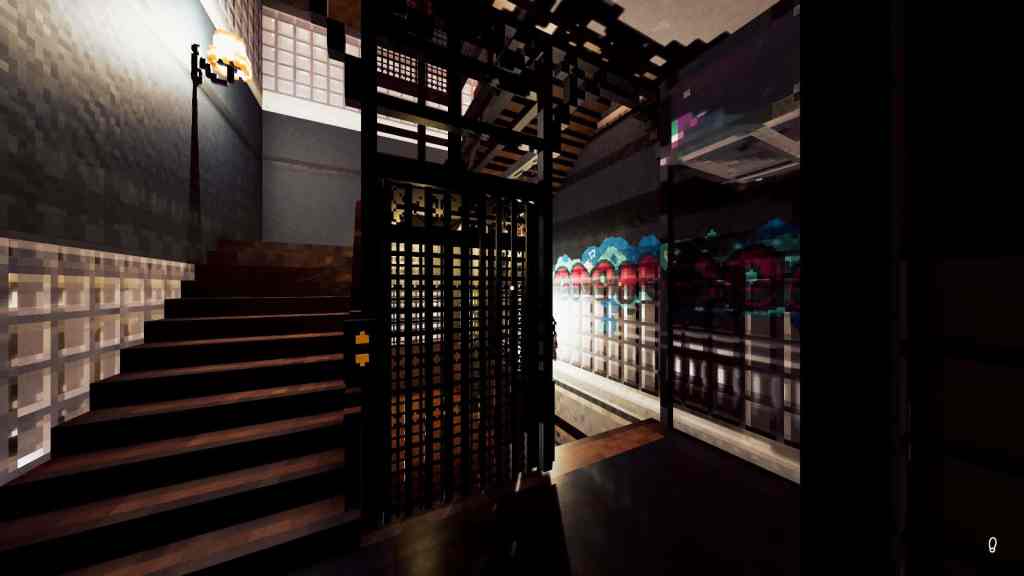
Shadows of Doubt gives you this small but extremely dense city to wander around in. A handful of streets are lined with buildings that reach for the stars, filled with apartments, office spaces, shops, elevators, ventilation, security systems, mailboxes – all of it. This isn’t all just for show, either. Every apartment is inhabited, every work desk matches up with an employee, and every shop sells its own wares.
Not only that, every person inside those apartments is simulated as well. They eat, sleep, go to work, hang out, and generally interact with the world in their own ways. The simulation drills down on their hair, skin tone, gender, jobs – even going as deep as their fingerprints, their blood type, their shoe size.
Knowing this, you might walk by someone heading up the stairs in your building, when a thought crosses your mind: Who was that? Do they live here? And why are they walking up the stairs at 3am?
Everybody is Somebody in Shadows of Doubt.
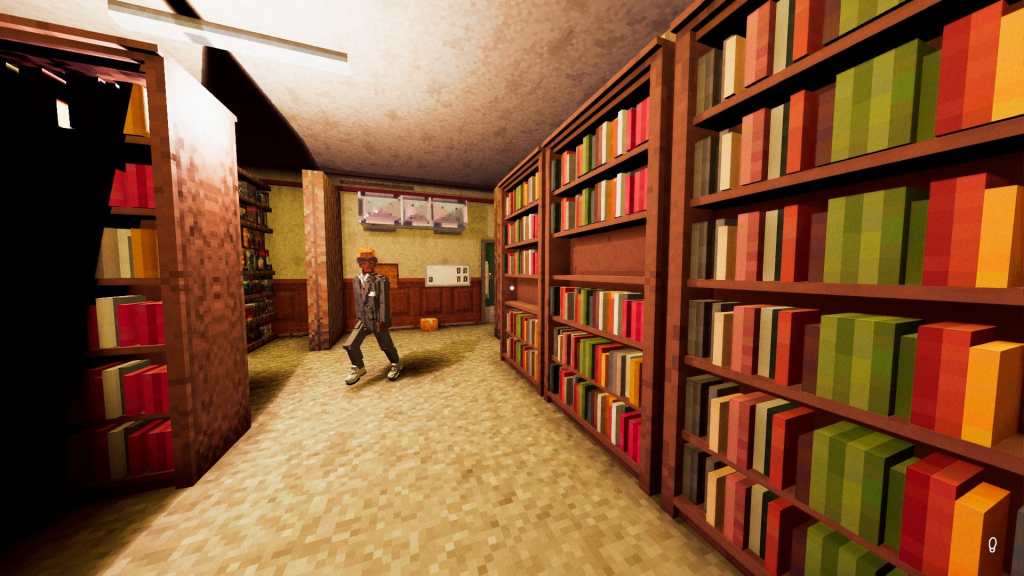
What’s particularly notable about all of this, is that everything – the locations, the people, who they are, and how they interact – is procedurally generated by the game. Very little outside a tutorial is created ‘by hand.’ Not only that, but the procedural generation also applies to the systems of the game, with each novel mission and case cascading off one another. Not only is every world in Shadows of Doubt completely unique, but even if you were to play through the exact same world twice, it would still be a different experience.
Neon Noir Detective
The procedural nature of Shadows of Doubt is a valuable assets, because it’s a game less interested in you becoming the master of a space, and more interested in you actually inhabiting and discovering it. Filtered through the eyes of a private investigator, your primary goal is always one of information rather than domination – an ethos that is humorously embodied by the game’s approach to guns; while you can equip a gun, you can only use it to whack things.
Your Raison d’être is, as you may expect from a detective game, solving mysteries and performing questionable jobs for people who don’t want to do the dirty work themselves. Regardless of what type of job you’re on – be it a traditional murder case, a photography request, some good old-fashioned property damage, or some light thievery – you’re given the barest of crumbs as a lead, and must figure out what to do all on your own.

Each case lives on a corkboard with red string in your inventory, which you manage by pinning different bits of information here and there, making connections and deriving conclusions from your environmental sleuthing work. Finishing a case involves you inputting the correct information on a form, and then handing it in to the relevant party for processing. Get it right, and you get paid.
And there are many, many ways of approaching a job based on the information you have at hand. One job asked me for a picture of a particular person, with the only information given being they were a receptionist, had red hair, and lived on floor 6 of a specific apartment building. A second asked me to publicly humiliate a worker at the local hardware store – ‘the one with the glasses.’ What’s interesting about these jobs is that not only are they a generative story in their own right – but you add your own unique little narrative to the story through your approach.
For example, to photograph the receptionist, I tried door knocking across the floor – but nobody with red hair answered. I left, waited until around midnight, then headed back with the intention of snooping around the apartments for some loose identification. Casually picking the lock of apartment 602, I snuck into it, thinking the tenants would be asleep.
In my carelessness, I didn’t realise the TV was on in the lounge room, and a man with red hair was watching it. As he angrily got up from the couch and started running towards me, I quickly snapped a photo – which only made him more angry. He chased me out of the apartment, and in my panic, I fled up the stairs instead of down. Thankfully, I lost him somewhere on floor 15.
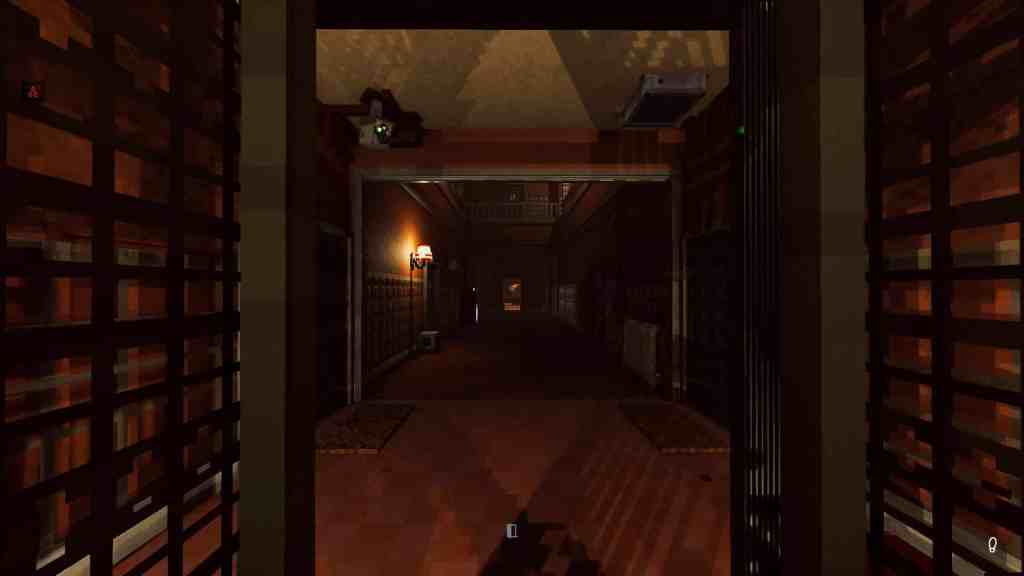
For the second job, I was already familiar with the hardware store – having broken in and misappropriated the contents of the safe the day earlier – and I remembered there was a board with employee photos in the back of the store. ‘The one with the glasses’ was the manager, so I knocked on the employee-only door, and waited.
As soon as I saw those glasses, I grabbed a donut I had in my inventory, threw it at him, and then snapped a picture for proof. As you can imagine, Mr. Glasses was less than impressed, and to my surprise, pulled out a gun on me and fired. Making it out with a graze, I settled down behind some dumpsters to patch myself up – only to realise I hadn’t properly saved the photo. I needed to do it all again, and find a completely new approach.
Neither of these jobs was purposely crafted, but thanks to the sheer level of player freedom, combined with the incredibly deep systemic procedural generation, I felt like I had been part of some incredibly thrilling and completely unscripted narratives.
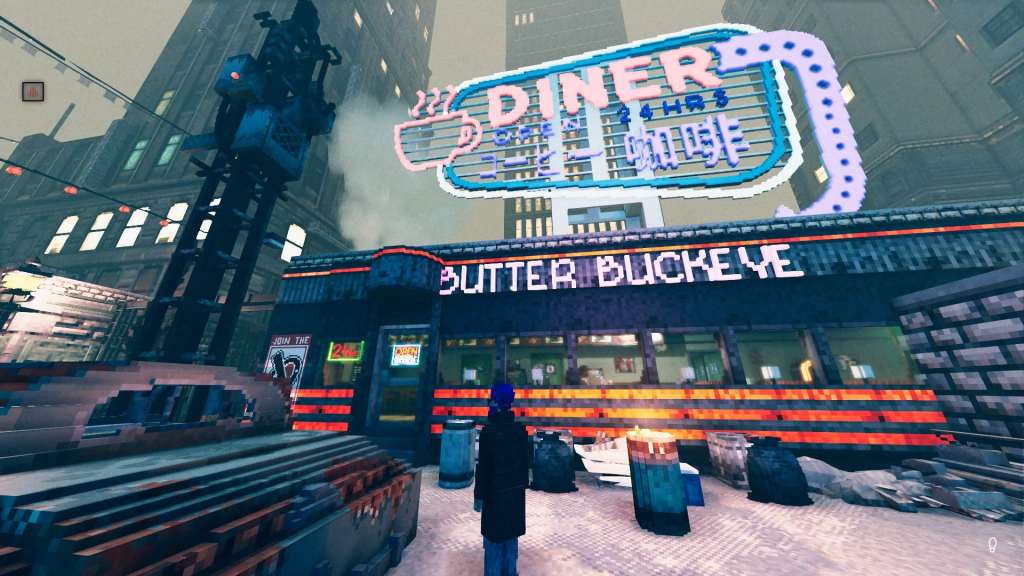
Not Yet 1.0
Due to the incredibly complex generation going on behind the scenes, a few technical issues and bugs can sometimes find their way into your stories. Some are harmless, and some can require a restart of the game. But despite this, Shadows of Doubt is ‘feature complete,’ and all of its ambitious systems work. The development roadmap between the time of writing and the game’s 1.0 release consists of more content and technical refinement.
There’s certainly still room for some improvement, however. One of the most notable areas for improvement is in the conversations you have with characters – while the generated behaviour, schedules and interactions each character has is impressive, the facade drops when you realise that everyone speaks to you in a near identical manner. There’s also not much variety when it comes to dialogue options, mannerisms, and personalities. But given what the game accomplishes, it’s a small fish in a vast ocean. The dialogue is still functional, is quite expansive, and always serves to provide you with the information you need.
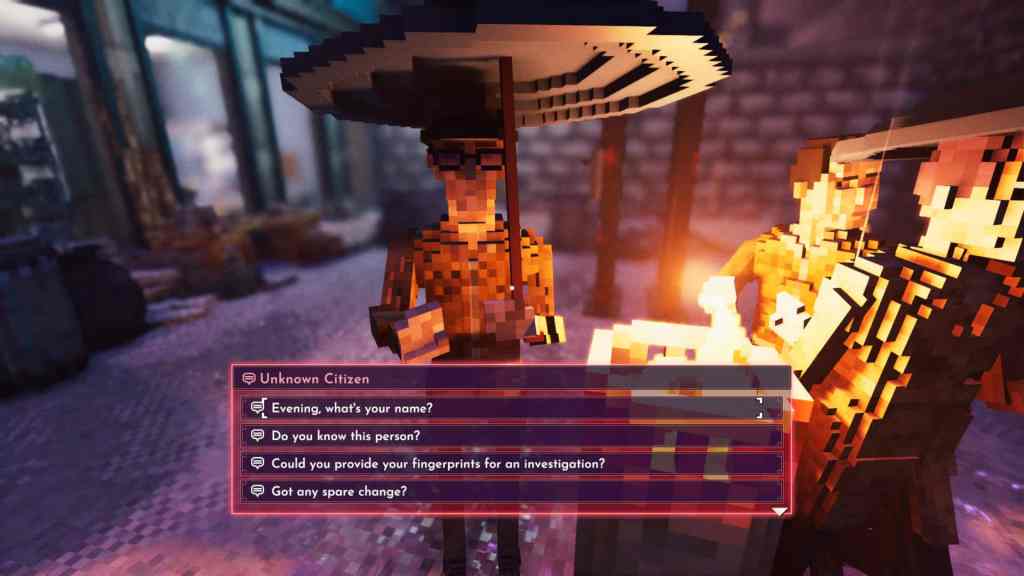
A few rough edges don’t prevent Shadows of Doubt from being incredibly unique, interesting, and utterly enthralling. It’s a game that manages to pull off a level of depth and complexity of simulation in the service of generative gameplay and storytelling that few other games have even attempted, and without any smoke and mirrors, too – it simply does the thing at an incredible scale.
When the inevitable conversations about the most innovative games of 2023 begin to happen, Shadows of Doubt will be the first words out of my mouth.
4 Stars: ★★★★
Shadows of Doubt
Platforms: PC
Developer: ColePowered Games
Publisher: Fireshine Games
Release Date: 24 April 2023 (Early Access)
The PC version of Shadows of Doubt was provided and played for the purposes of this review.

